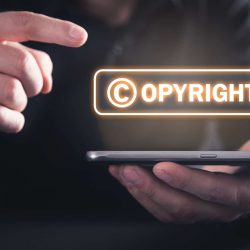In the dynamic landscape of startups, where creativity and innovation converge, collaborative efforts often play a pivotal role in creating intellectual property. However, with creativity comes the responsibility of understanding and managing copyright ownership, ensuring that each contributor’s rights are protected. This guide aims to shed light on the nuanced world of copyright in collaborative projects within startups, offering insights and a practical framework for safeguarding these valuable assets.
The Essence of Collaborative Creation
Startups are often born from a shared vision, where individuals with diverse skills come together to transform ideas into reality. In this collaborative environment, intellectual property becomes a collective endeavor. The challenge lies in delineating the ownership of the resulting creations, be it software, design, content, or any other form of intellectual output.
The Basics of Copyright Ownership
Before delving into the complexities of collaborative copyright ownership, it’s essential to understand the basics. Copyright automatically vests in the creator of an original work at the moment of creation. In the context of startups, this means that the person who conceives and expresses an idea first is initially the copyright owner. However, when multiple contributors are involved, determining ownership becomes more intricate.
Navigating Joint Authorship
Collaborative works often lead to joint authorship, where two or more individuals contribute to the creation of a single work. In such cases, copyright is jointly owned, and each contributor enjoys equal rights unless an agreement states otherwise. It is crucial for startups to establish clear terms regarding joint authorship to avoid potential disputes down the road.
The Importance of Agreements
To mitigate the risks associated with collaborative copyright ownership, startups should implement robust agreements from the outset. Clear and comprehensive agreements can define each contributor’s rights, responsibilities, and the distribution of ownership. Addressing potential scenarios, such as the departure of a team member or changes in the project scope, ensures that the startup remains in control of its intellectual property.
Work Made for Hire and Freelancers
When startups engage freelancers or contractors to contribute to a project, understanding the concept of “work made for hire” is essential. In such cases, the hiring entity, typically the startup, is considered the legal author and copyright owner of the work. Clear contractual language defining the work’s status as “work made for hire” or specifying the transfer of copyright is crucial to avoid future disputes.
Protecting Contributors and the Startup
Startups must prioritize transparency and communication when it comes to copyright ownership. Providing contributors with a clear understanding of their rights and the startup’s intended use of the collaborative work fosters a positive and trusting environment. This not only safeguards the rights of contributors but also strengthens the startup’s intellectual property portfolio.
Strategies for Resolving Disputes
Despite proactive measures, disputes may arise. Having a dispute resolution mechanism in place is vital. Mediation or arbitration clauses in contracts can provide a structured and confidential way to resolve conflicts without resorting to lengthy and costly legal battles. Quick and amicable dispute resolution preserves the collaborative spirit and protects the interests of all parties involved.
Continuous Review and Adaptation
The startup landscape is dynamic, and projects evolve. Regularly reviewing and updating agreements as the project progresses helps align copyright ownership with the current state of collaboration. Being proactive in adapting agreements to changes in team composition, project scope, or strategic direction ensures that the startup remains in control of its intellectual property.
Conclusion
In the collaborative realm of startups, understanding and managing copyright ownership is a cornerstone of success. By acknowledging the basics of copyright, navigating joint authorship, implementing clear agreements, and prioritizing transparency, startups can protect both contributors and the company’s intellectual assets. As startups continue to innovate and create, a thoughtful approach to copyright ownership ensures a harmonious collaboration that paves the way for sustained success.





